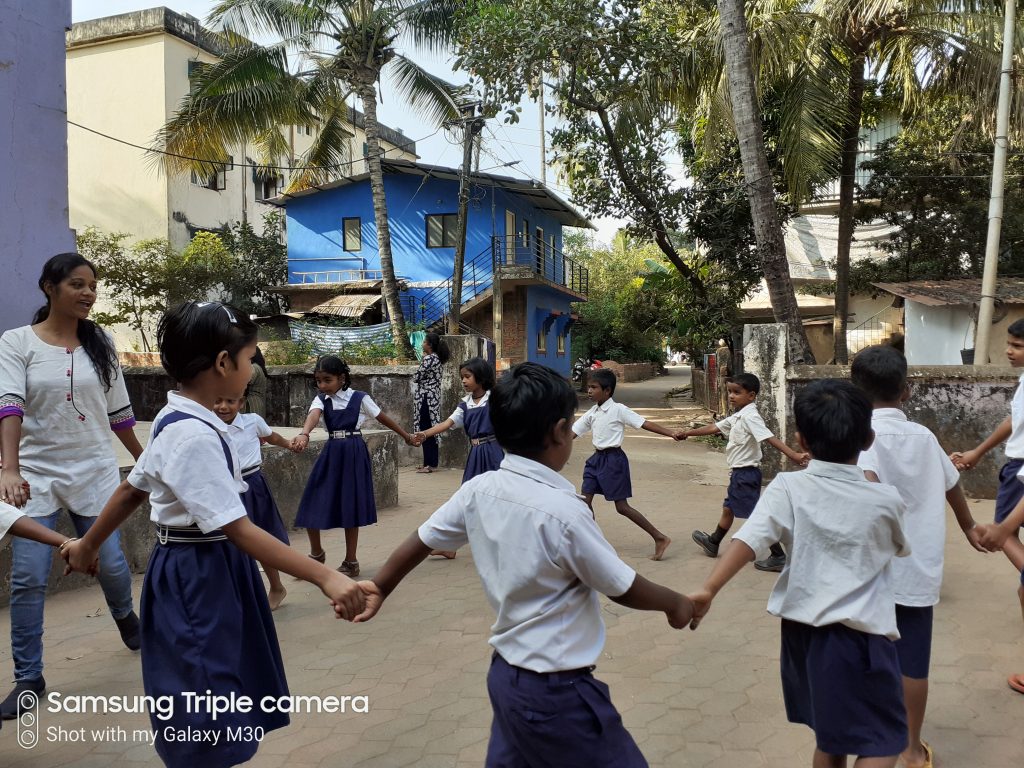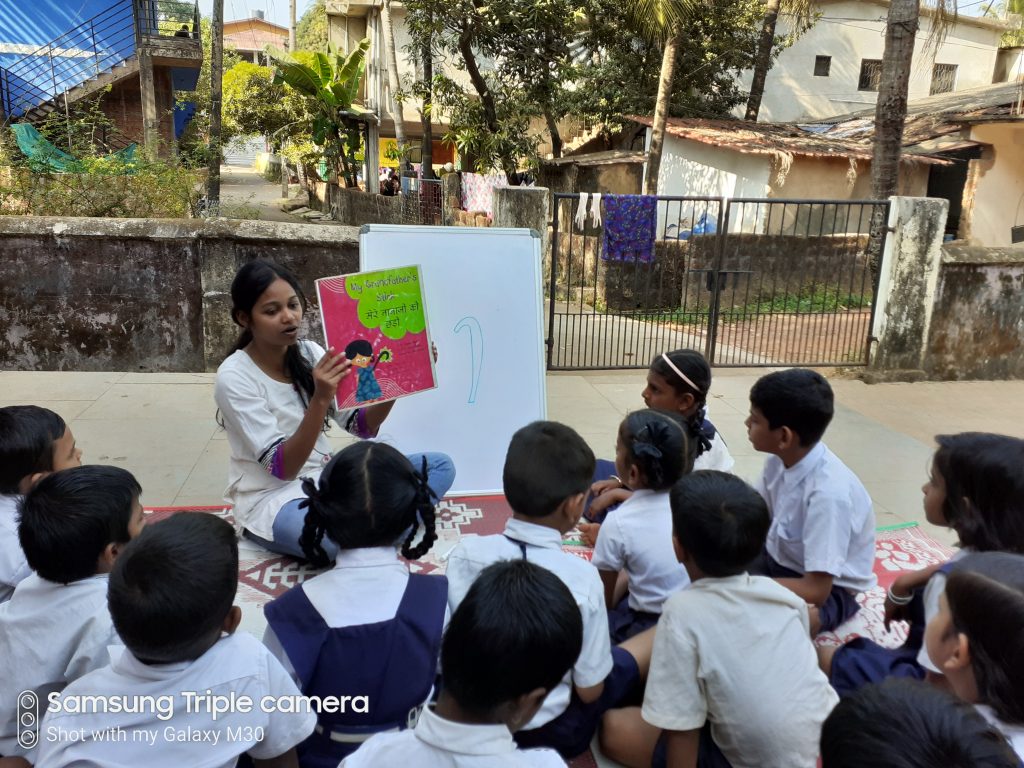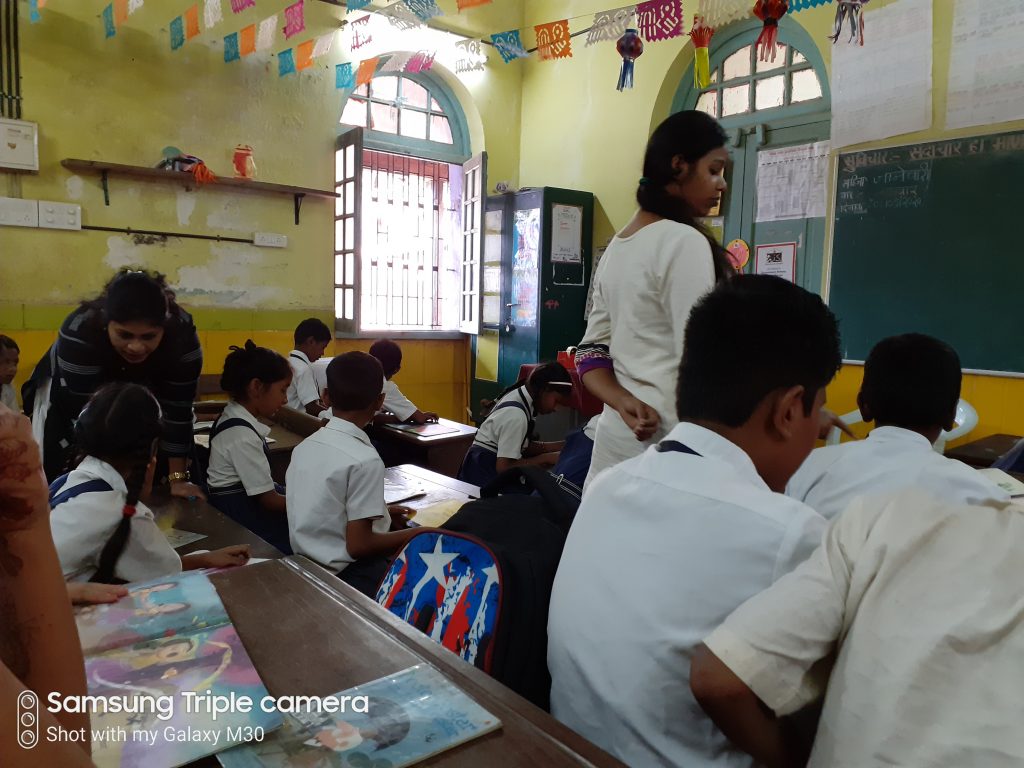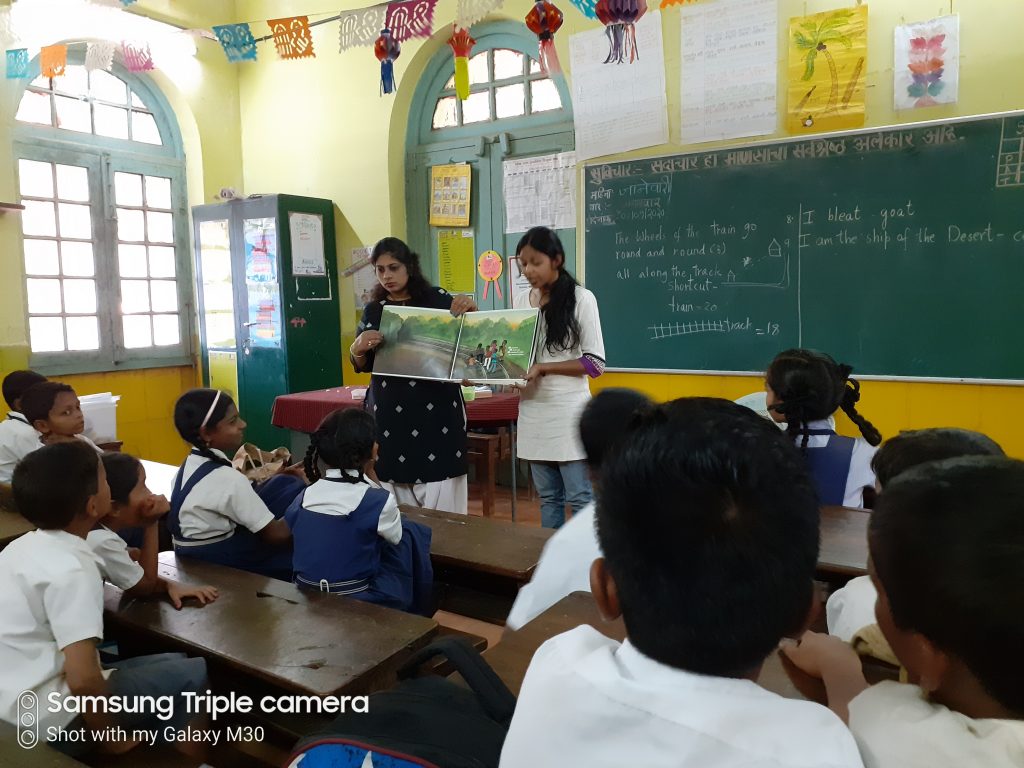The Library in School Program supported by Cipla Foundation was initiated to enable a library experience for hundreds of children in under resourced schools. The Library program includes story read alouds, engagement activities and story books for home lending to children every week in eight schools in Goa (Three Government Primary Schools, one Semi Government and Special School and three Aided Schools). The program is enabled by Cipla Foundation.
As I was called upon as an observer for one of these sessions, I was aware of the outreach, but unable to grasp the impact this was making. My first observation session was at Govt. Primary School, Merces. As we arrived, the children, were more than exited to see the car pull in, all ever-ready to lend a hand to help unload the material brought for the session. Needless to say, It was an encouraging start to the day ahead.
The session for standards I & II began, after the library set up, of which, one thing that I found promising was the open air setting, so similar to the older systems of classes held under a tree. With such an environment, there is so much room for imagination and learning though one can quiet easily come across distractions, which may also be taken positively, as it means that the children’s minds are wandering far and wide. The resource person (RP ) began the session with songs to bring the children together and orient them to the happenings of the class to follow. The songs cheer them up, making their eyes glow. One of the songs also oriented the children to the story to be read.
The class then progressed to a book talk, which in one way, makes the children understand and portray the book better, building their imagination and confidence to explain in front of a crowd. The RP does one Book Talk first and then the children are invited to do some, which they responded to immediately. Another very important value inculcated through this is, asking questions which again builds their mind. The class is not like a classroom which teaches prescribed things and expects the same things to be reproduced for marks, but instead, library encourages reading, understanding, imagining and then sharing that love for reading with others through maybe a book talk, storytelling or discussions.
After the Book Talks, the RP has a story planned. So on the occasion of Grandparents day, the story chosen was, Grandfathers Stick author name, illustrator name, publisher details. Before the story, the children were engaged in talks of their grandparents dada/nana in their regional language, in order for them to relate, which happens to be one of the most important steps. Just encouraging reading or listening in English, without helping the children relate and get involved, defeats the purpose of the entire session.
The Read Aloud session, which involves an enlarged copy of the chosen book, was done with great tact, with the right amount of voice modulation and expressions from wonder to joy, from excitement to entertainment. The RPs efforts were seen in the way the children were responding and trying to keep up with the story. At the end of the read aloud, the children are asked to do an art and craft activity which is simple enough to resonate with them. The RPs also help the children who can’t grasp concepts easily.
After this, book returning and lending takes place to the children’s delight. Also an important activity as the changing and circulation of books and providing them with new options is what will hold and build their interest in reading. This is where a curated collection falls into place.
The next session was with IV and V standards. The setting was indoors, which enforced the context of the story ‘Shortcut’. The story was based in the night for which, switching off the lights created the perfect setting. Then the RP taught the children how to make train sounds. Again orientation ad creating excitement along with engaging the children has to be an acquired tact. The choice of the story needs to be on point for the experience to be truly engaging.
All in all, the sessions were engaging, inviting and exiting for the children to get a positive library experience. Different activities and tactics were used to hold their interest and engage them with the stories. Where possible, regional language was used, so much so, that the entire story was translated into Hindi with usage of Marathi, when required. This level of effort shows an intense involvement of the RPs with the programme and their in-built tendency in making the programme better. From art and craft activities to updating of the book collection, to coming up with new and improved acts, brings to light the commitment of the LiS team in making this programme reach children who are extremely in need of it.
A programme such as this focuses on children who lack resources to be exposed to a collection of books which will help them engage in the activity of reading. Promotion of which is essential to reach children who need a voice which they may receive through a good collection, or the efforts put in, by the RPs. The ability to speak up in front of others is also encouraged through book talks which is essential in the outside world. This programme pulls that ability to the surface.
Thus far the team can confidently claim that the library intervention has been a successful model of engagement, resulting in keen interest in story and strengthening literacy and language skills of children in English while simultaneously providing language books where the need arises for better understanding and wider reach in order to foster critical thinking.





